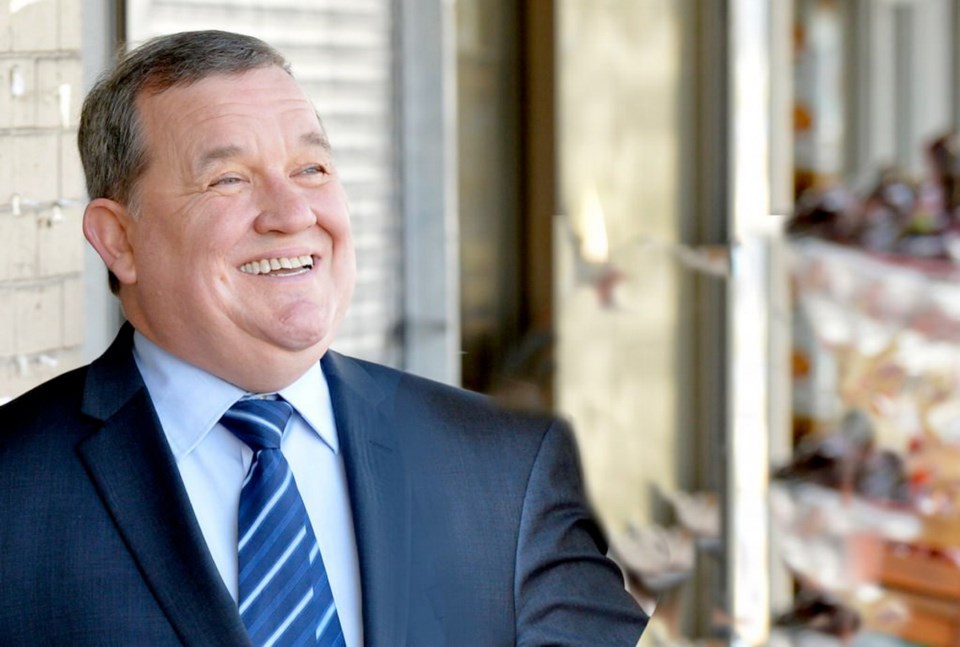The province’s move to let people on disability and income assistance earn an extra $200 per month before clawing back support is a step in the right direction, advocates say.
But those on disability will still have to wait until January to see separate funding for the disability bus pass restored.
Beginning Oct. 1, people on income assistance will be able to earn $400 per month, up from $200, before their support cheques shrink. For those on disability assistance, the annual earnings exemption will increase by $2,400 — to $12,000 from $9,600 per year.
“This is a critical piece,” said Shane Simpson, minister of social development and poverty reduction, on Tuesday.
“It’s important that we create opportunities and incentives for people to be able to make improvements in their lives,” Simpson said.
The disability income exemption comes into effect immediately. That means about 1,500 people on disability who have already reached the $9,600 ceiling or gotten close this year, can earn an extra $2,400 before support declines, Simpson said.
The exemption costs the province about $20 million over three years and fulfils one of the New Democrats’ campaign promises, he said.
In its throne speech, the new government also committed to “provide people with disabilities access to the transportation supports they need, including an annual bus pass for those who want one.” That will happenJan. 1.
Simpson acknowledged he has heard concerns from some people that they must wait three months for the pass, but said the government is not considering waiving existing pass fees before then.
He said he hopes the already-announced $100 boost to basic income assistance and disability rates — went out this week — alleviates some pressure.
His ministry is still consulting stakeholders to develop the promised “poverty reduction strategy,” he said.
Surrey-Cloverdale MLA Marvin Hunt, who is the Liberal critic for social development and poverty reduction, praised the earnings exemption.
“As our economy continues to grow, unemployment goes down, it’s absolutely great because obviously we want people who are on assistance or persons with disabilities — we want them to be in the job market, we want them to grow and develop their skills in the job market,” Hunt said.
The B.C. Liberals came under attack last year when they increased disability rates, but deducted a new $52 fee for the disability bus pass or a $66 transportation subsidy. The result for some was a $77-per-month raise that was reduced to $25 once they paid the new bus fee.
Hunt said that’s a better model, however, since it means people without bus access aren’t treated differently from those without.
“What I’ll be watching for is how are they going to deal with people who don’t have access to buses,” Hunt said.
“The reality is, people who don’t have access to a bus system still need access to transportation.
“And they also need funds for transportation.”
Our Place executive director Don Evans said the earnings exemption will give those on assistance a needed break, but said it should be higher.
“I think we should be encouraging people on income assistance to get to work. Giving them a larger exemption does that,” he said.
“I also think we want to get people up to earn enough to have a decent living. And this helps, but it’s not enough for a city where the cost of living is as high as it is.”
Ideally, the earnings exemption would equal the amount an individual gets in support, which would double the amount they have to live on.
“I’d encourage them to go further, but I think it’s a good first step,” Evans said.
David Hosking, executive director of the Victoria Disability Resource Centre, said the extra $25 per month that people with disabilities have ended up with, after deducting the cost of the bus pass from their income assistance, hasn’t been significant.
“That’s not enough to make a difference to one’s life options,” he said.
Hosking said he’s looking forward to seeing what the poverty-reduction strategy actually looks like and said he hopes it focuses on improving employability and training opportunities.
Jane Dyson, executive director of Disability Alliance B.C., said she has spoken with two people who will benefit from the earnings exemption ceiling being lifted.
“What this means is they won’t have to either make the not-very-productive decision of stopping work or coming off benefits,” she said.
She said her organization understands reducing or eliminating disability bus pass fees is taking the government time.
“As the minister said, it’s very challenging, and we appreciate that,” she said.



